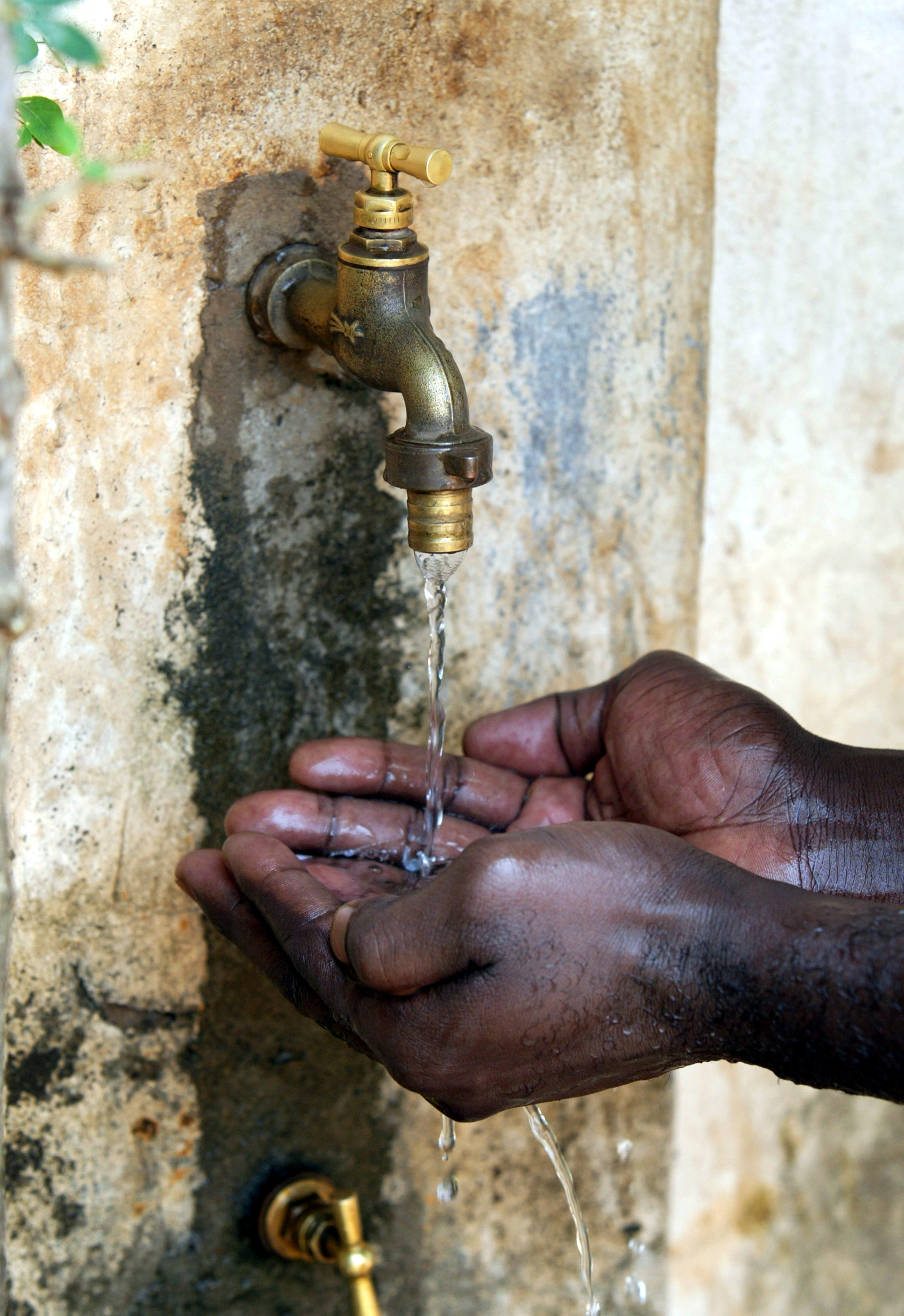Core area “Conserving nature and natural resources, protecting life on Earth” Safe drinking water for all and conservation of biodiversity
Public water tap in Benin
Area of intervention “Water”
In the area of intervention of water, Germany's development cooperation focuses on conserving water resources, which are getting scarcer, and on wastewater treatment. With support from further donors, for example the World Bank, the Beninese government is expanding drinking water supply systems in rural regions, making it all the more important to ensure that sufficient quantities of water are available for the growing agricultural sector and for drinking water. The authorities lack information about the volume and quality of water available in specific regions. Germany is helping to develop the capacity of relevant authorities and local water committees to collect relevant data and improve the management of existing water resources.
With support from several donors, the Beninese government has undertaken enormous – and successful – efforts to improve access to safe drinking water for the constantly growing population. However, one fourth of the people still have no access to safe drinking water. This applies, in particular, to people in the rural north, but also to people in informal settlements on the urban fringe. Projects run by KfW Development Bank in four areas on the outskirts of cities in south-eastern Benin are giving 540,000 people access to safe drinking water. KfW Development Bank is also providing fresh funding from 2023 commitments to support the expansion of drinking water supply in cities in northern Benin.
Another form of German support is advice for municipalities on how to improve wastewater management. A plant-based wastewater treatment facility that has been funded by KfW Development Bank is protecting the Gulf of Guinea and Lake Nokoué from pollution. The facility treats the sewage sludge from 300,000 people living in greater Cotonou. In order to improve hygienic conditions, GIZ, acting on behalf of the BMZ, has assisted selected municipalities in installing facilities for automatic drinking water chlorination and in training staff to operate them.
Area of intervention “Biodiversity”
Germany's activities in this area of intervention focus on biodiversity conservation, especially in the national parks in northern Benin, in combination with capacity development for the people living near the national parks.
The W, Arly and Pendjari National Parks (W being named for the W-shaped course of the Niger River) together form the WAP region. It comprises an area of over 30,000 square kilometres situated in Benin, Burkina Faso and Niger. This is West Africa's largest contiguous protected savannah area. Its unique biodiversity is under threat from the growing spread of Islamist groups, organised poaching, conflicts over nomadic pastoralism, and the high level of population growth. The consequences of climate change are exacerbating the situation.
In order to protect the region's vast biodiversity, KfW helped launch the West African Savannah Foundation (Fondation des Savanes Ouest-Africaines, FSOA). The resources generated from the interest earnings of the Foundation are used for park management and maintenance and for assistance for people in the buffer zones.
Enabling people to share the benefits of biodiversity
One GIZ project supports the management of the shared protected area and the improvement of the living conditions of people in the park's buffer zones. To that end, support is being provided for value chain development, for instance the production and processing of honey, shea butter, sesame, soy cheese, mung beans and baobab leaves.
It is hoped that the improved income and living conditions will contribute towards reducing conflict and terrorist influence from the Sahel region in northern Benin. In the final phase of the project, it has been possible, based on cooperation with local non-governmental organisations that are familiar with local conditions, to reach 660,000 people, 77 per cent of them women. The project also includes reforestation and renaturation activities that are pursued together with local communities.
As at: 08/02/2024
